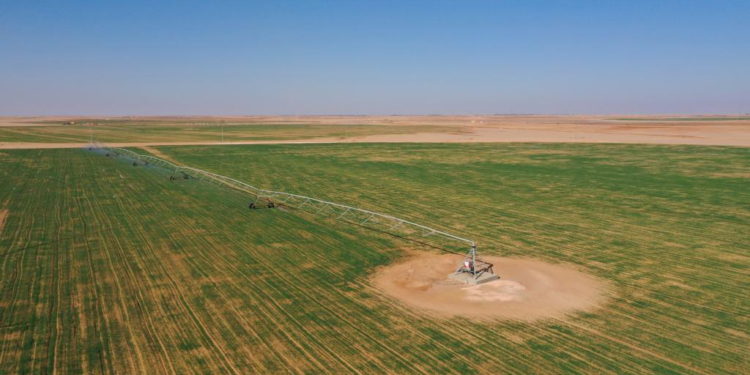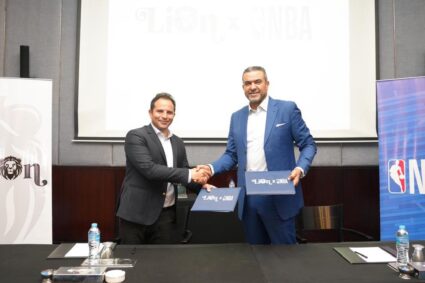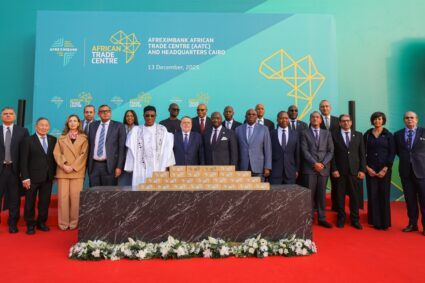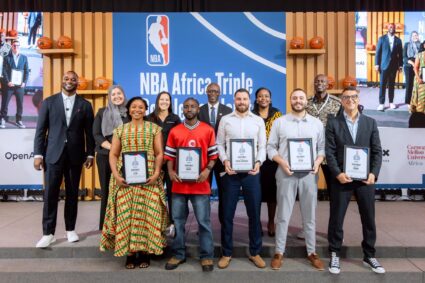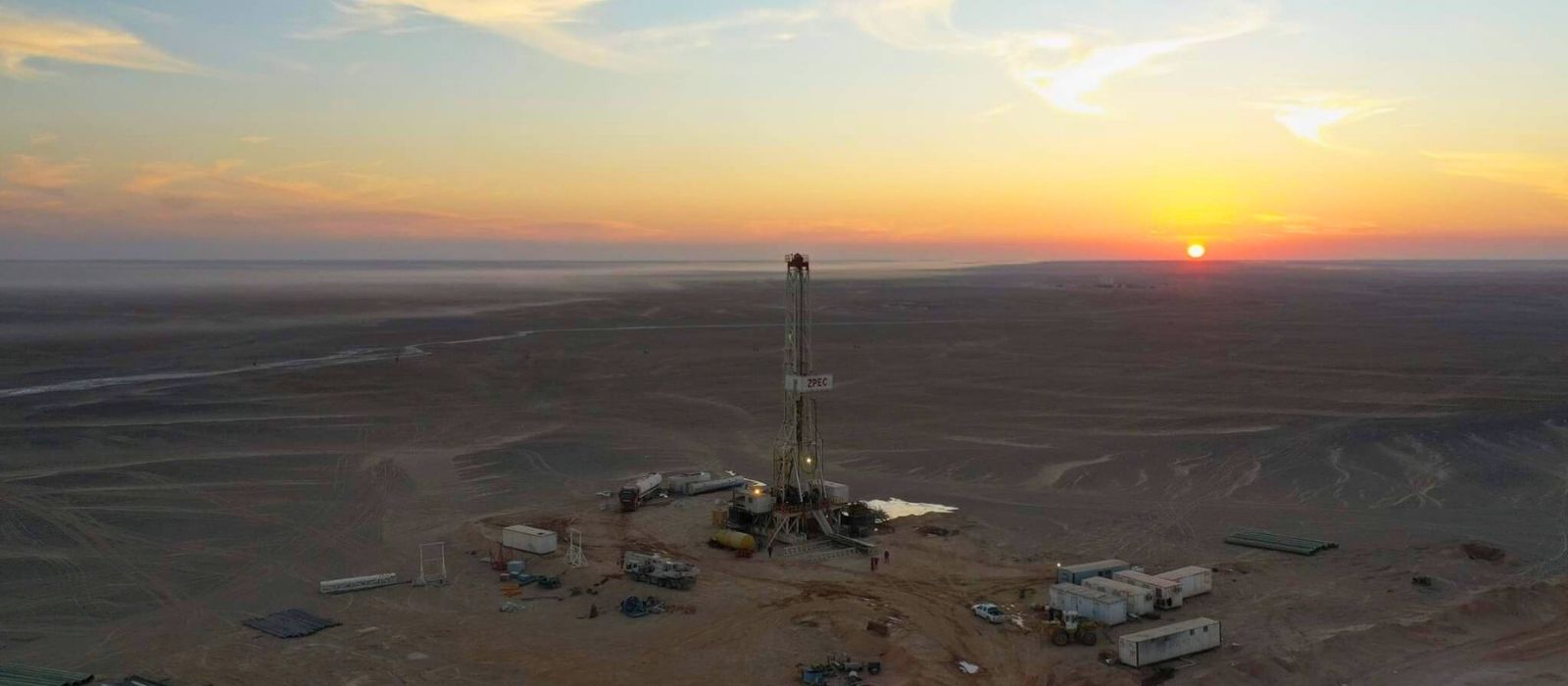
In the vast expanse of the Kom Ombo desert, just north of Aswan in Upper Egypt, a quiet yet transformative revolution is taking place. Beneath a sky that stretches endlessly over golden dunes, vibrant green patches of wheat now break the monotony of the arid landscape. This striking contrast tells the story of ingenuity, determination, and the pursuit of progress in one of the harshest terrains on Earth.
The force behind this extraordinary transformation is Zhongman Petroleum and Natural Gas Group Corp., Ltd. (ZPEC), the Chinese drilling firm that has become a vital partner in Egypt’s ambitious effort to reclaim its deserts. Since establishing its operations in the country in 2016 under the Belt and Road Initiative, ZPEC has drilled over 540 wells across Egypt, turning barren land into fertile ground. From the Sinai Peninsula to the rugged terrains of Minya, Matrouh, and Aswan, ZPEC’s reach has extended to regions previously deemed inhospitable.
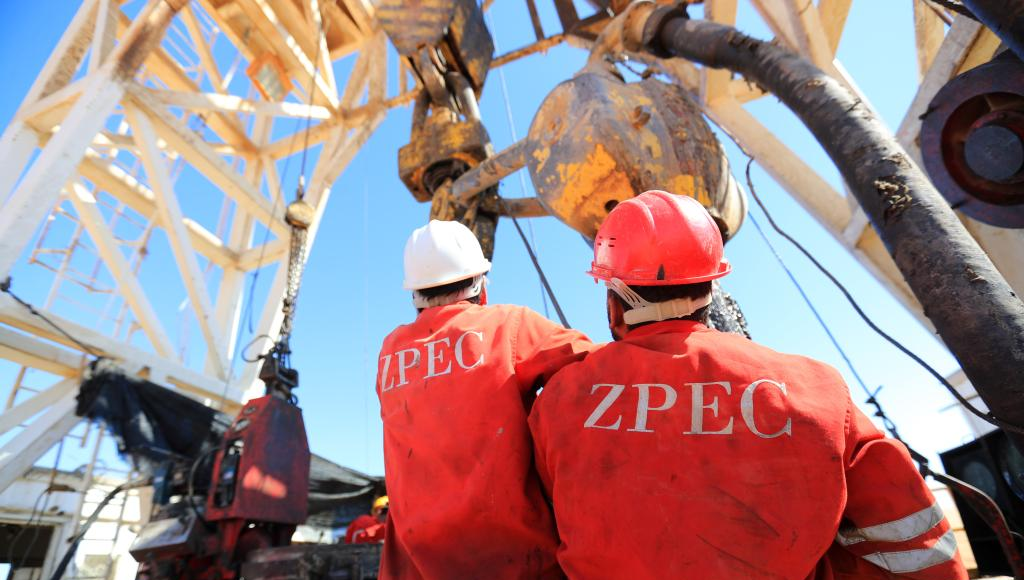
work on a rig platform to drill a well in the desert of Aswan province, Egypt, on Nov. 23, 2024.
For 30-year-old Ahmed El-Sadani, the deputy manager of ZPEC’s Aswan water well project, the sight of clear groundwater erupting from a newly drilled well is a moment of unbridled joy. “Before, this place was barren, lifeless. Now, with the irrigation provided by well water, crops thrive, bringing vitality and hope,” he said, standing amidst the verdant farmland his team has helped create.
El-Sadani oversees six drilling teams and has worked on desert reclamation projects since joining ZPEC in 2018. His journey from mud engineer to field leader is emblematic of the opportunities that such projects provide for local workers. Alongside him are more than 200 Chinese and Egyptian employees, who endure the gruelling conditions of the Kom Ombo desert to bring this vision to life.
The challenges faced by the team are as vast as the desert itself. In the searing summer heat, where temperatures often soar above 40 degrees Celsius, strict safety protocols ensure that workers are clad in full protective gear, despite the oppressive weather. Transporting the massive drilling equipment, which weighs up to 500 tonnes, requires a meticulously coordinated operation. Each rig must be dismantled into parts and loaded onto 25 vehicles, travelling over 1,000 kilometres through unforgiving terrain—a journey that can take up to ten days.
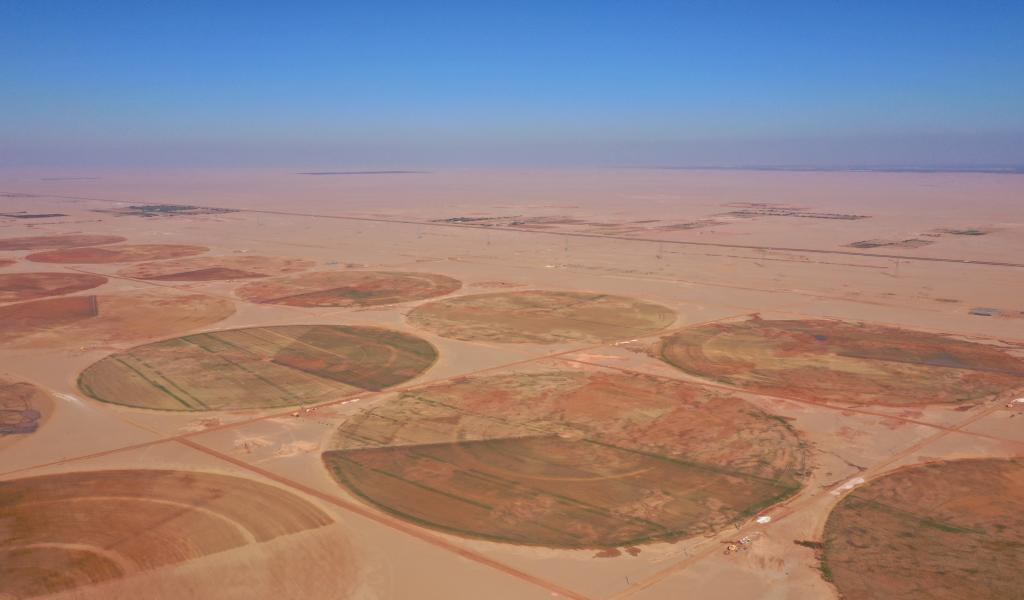
(China’s Zhongman Petroleum and Natural Gas Group Corp., Ltd.) in the desert of Aswan province, Egypt.
Despite these obstacles, the rewards are immeasurable. The once-barren sands of Kom Ombo now yield life-sustaining crops, a testament to what is possible with vision and effort. For Amr Mohammed, a 28-year-old site engineer who joined ZPEC last year, the project represents a mission of purpose. “This area is yellow now, but soon it will be green. What we are doing here is essential for Egypt’s future,” he said with conviction.
Egypt’s population of over 100 million faces the pressing challenge of expanding its meagre 5 per cent arable land. By tapping into its vast desert regions, the country aims to reduce its reliance on food imports and secure its agricultural future. The work at Kom Ombo is at the heart of this national effort, where the once desolate landscape is gradually being reimagined as a cradle of agricultural abundance.
For ZPEC’s general manager in Egypt, Zhao Wutao, the project is about more than just drilling wells. It is about fostering livelihoods, creating jobs, and forging partnerships. “We are engaged in projects that benefit communities, and it’s deeply fulfilling to see locals use the water we extract. This is our modest contribution to the partnership between China and Egypt,” he said.
The story of Kom Ombo is one of hope and resilience. It is a testament to the power of collaboration and the belief that even the harshest environments can be transformed with vision and perseverance. What was once an endless sea of sand is now becoming a patchwork of green, a living example of how human effort can triumph over nature’s challenges.
As the Kom Ombo desert continues its remarkable transformation, it stands as a beacon of what is possible when determination meets innovation—a vision of a greener future painted against the golden hues of Egypt’s deserts.
